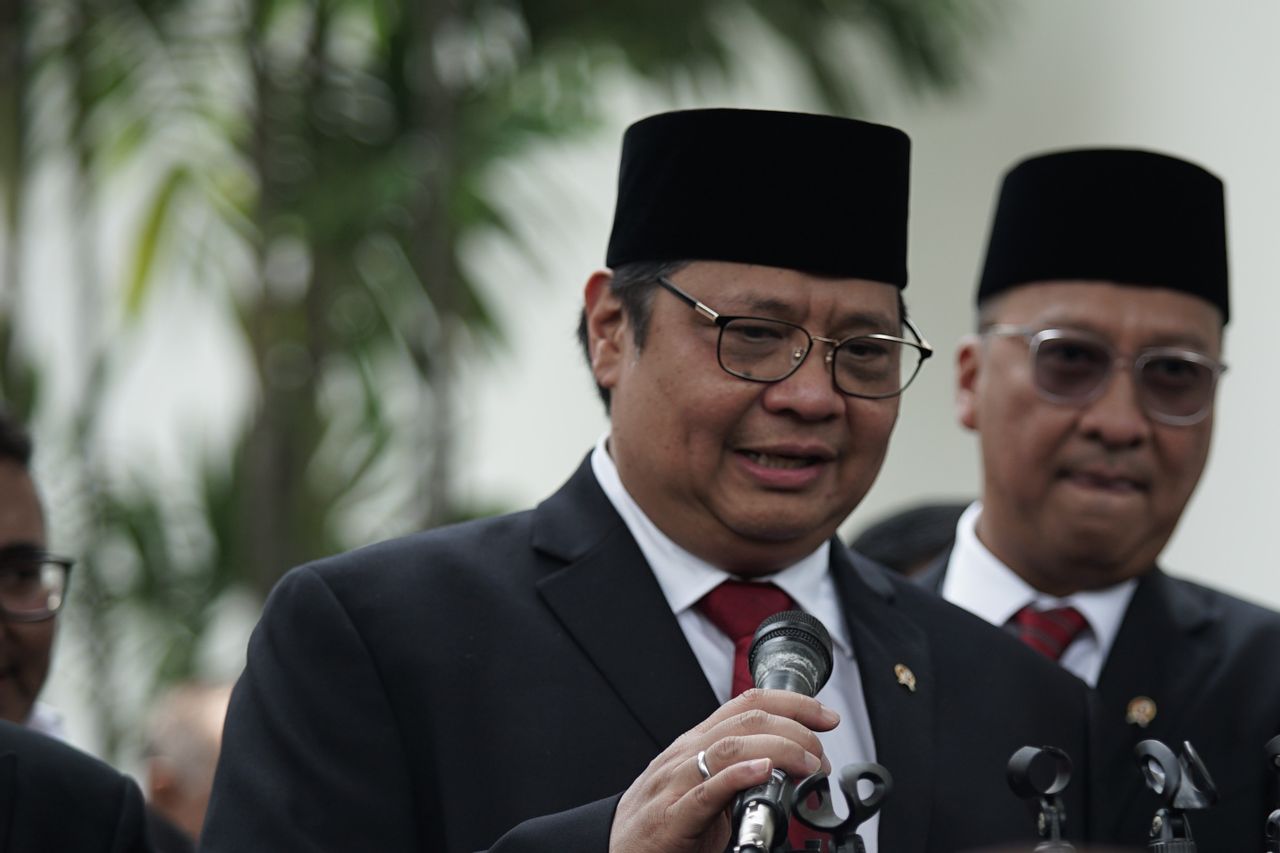Airlangga Hartarto: 8 Provinces Are Ready To Implement The New Normal

JAKARTA - The government is preparing a protocol for implementing the new normal order that is productive and safe for the corona virus or COVID-19. There are eight provinces that are claimed to be ready to go to the new normal. The policy of normalcy can only be stopped in the event of a second wave of COVID-19.
The Coordinating Minister for Economic Affairs said two programs were designed by the government for the implementation of the new normal protocol, namely the COVID-19 Exit-Strategy, which starts gradually at each phase of economic opening and the national economic recovery program (PEN) in accordance with Government Regulation Number 23 of 2020.
"The government is making plans so that life can gradually move towards normalcy, while paying attention to the data and facts that occur in the field. These data will of course be coordinated and lead to BNPB," said Airlangga, in a video conference, Wednesday, May 27.
Airlangga said the government had made a readiness assessment stage based on a scoring system that included two dimensions. First, the health dimension, which consists of disease progression, virus surveillance, and health service capacity.
Then, continued Airlanga, second, the dimensions of socio-economic readiness that include protocols for each sector, region and transportation that are integrated with one another.
According to Airlangga, this productive and safe COVID-19 scenario could only be achieved if the government together with the community responded quickly to efforts to reduce infection and death rates due to COVID-19.
In addition, he said, it is necessary to boost economic recovery quickly by opening up economic activities after the curve slopes. Including doing fiscal and monetary encouragement, so hopefully Indonesia can get out of the economic recession.
The juridical aspects of the implementation of a productive and safe society for COVID-19 are related to large-scale social restrictions (PSBB).
Airlangga explained that there are conditions that must be met if you want to adjust the PSBB policy. Namely consisting of the development of COVID-19, surveillance of viruses or public health, capacity for health services, preparation of the business world, and public response.
Meanwhile, the new protocol for activities outside the home that will continue even though the PSBB is adjusted includes ensuring that you clean your hands with soap and clean water; use a mask when on the move outside the home; apply a minimum physical distance of 1 meter to 2 meters; self-isolation if exposed to positive and sick cases; and checking the temperature in each building.
Starting from Aceh to Bali ready to move to a new normalAirlangga said that health indicators in all regions in Indonesia are the reproduction rate (RT) and the development of new cases. Later, from the results of the assessment based on health indicators and protocol readiness, some information will be obtained.
According to BNPB epidemiological data, there are 110 districts / cities that have never been infected with COVID-19 or have no positive cases. So the effort that must be done is to maintain areas with green zone status so that they remain free from the spread of COVID-19 and restore economic activity while still paying attention to the application of new normal protocols.
Then, continued Airlangga, there are also regions or areas with RT infectivity less than 1. Based on data from the Ministry of National Development Planning or the National Development Planning Agency (PPN / Bappenas), there are eight provinces that are ready.
"Aceh, Riau, North Kalimantan, North Maluku, Jambi, DKI Jakarta, Bali and the Riau Islands," said Airlangga.
However, said Airlangga, there are also regions or regions that according to the trend analysis are Semarang (Central Java) and based on the analysis of the village or village level of the Governor of West Java, parts of West Java around Jakarta with significant economic contributions are ready to open.
According to Airlangga, in a closed cabinet meeting, Jokowi-Ma'ruf Amin also discussed the readiness of protocols, both general and economic activity, such as manufacturing, tourism, transportation and trade.
"The plantation sector which has been running so far, the mining sector which is far from the community, and the agricultural sector which was harvesting yesterday until now. These are sectors that can still be active and of course BNPB will continue to coordinate," he explained.
Stop the New Normal if a Second Wave OccursAirlangga emphasized that the implementation of new normal activities is only in areas where the spread of COVID-19 has sloped. However, if a second wave of virus transmission occurs, activity can be stopped again.
"If a secondary wave occurs, the activities will be stopped again and the activities will be disrupted again," he said.
Furthermore, Airlangga said that the government would also place TNI-Polri officers to maintain public discipline, especially in public places that were full of crowds.
"So that in that place the community can maintain discipline so that secondary waves do not occur," he said.
Airlangga said, the second wave of the spread of COVID-19 was not expected, because it would make economic recovery more difficult with an up and down curve forming a W shape. The government hopes that economic recovery will be in a productive and safe condition such as the V or U shape models.
"If there is a second attack and there is an extraordinary situation, this is what we do not expect. Of course there will be a separate protocol to deal with extraordinary circumstances," he explained.
